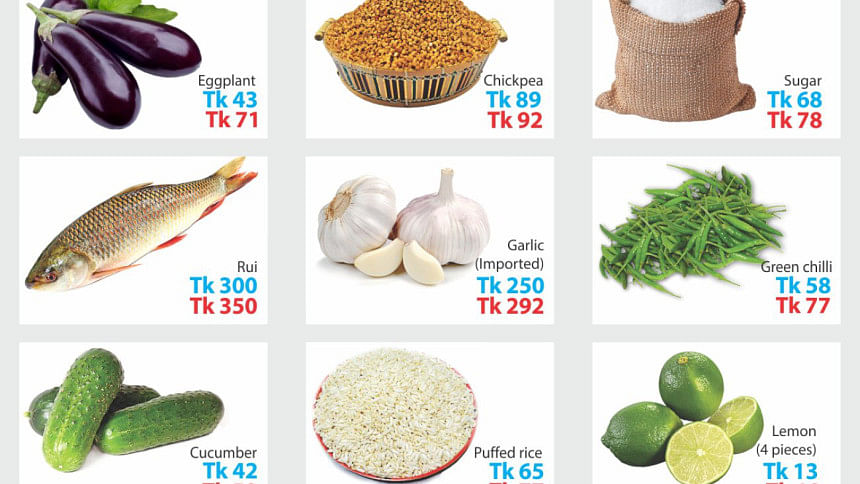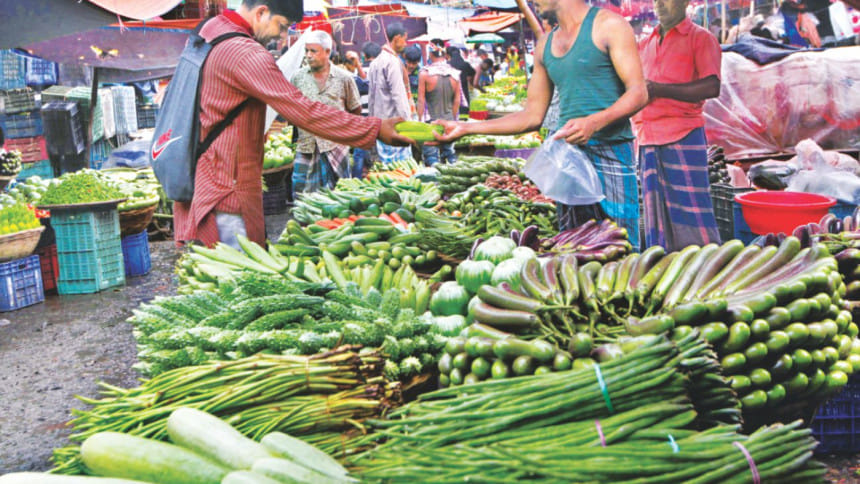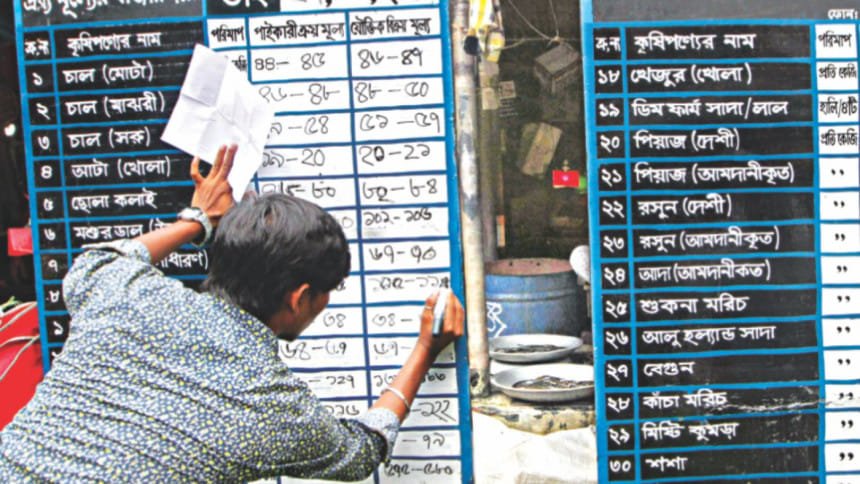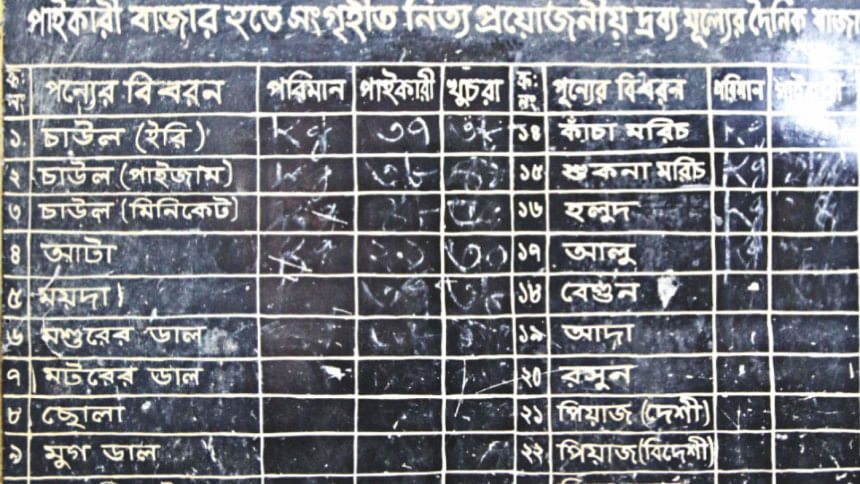Ramadan essentials get pricier

Like always, the prices of some essential commodities shot up on the first day of Ramadan yesterday.
The authorities took steps to control the price hike, but traders could not care less. They do not even follow the price list of the commodities issued by the city corporations for Ramadan.
A survey in Hatirpool Kitchen Market, Jurain Bazar, Banalata Kitchen Market in New Market area, Mohammadpur Town Hall Market and West Kazipara Kitchen Market in the capital found that essential items, including rice, pulses, chickpea, meat and fish were sold at a higher price compared to what it was a week or a month ago.
Dhaka South City Corporation (DSCC) fixed the price of chickpea at Tk 82-84 per kilograms (kg), but shopkeepers of the Hatirpool market were selling it for Tk 90-92, while imported garlic was sold at Tk 300-350 a kg instead of the fixed rate of Tk 275-286 per kg.

Trading Corporation of Bangladesh (TCB) expanded the Open Market Sale (OMS) programme in the middle of May, and the government assured people of adequate stocks of essential commodities at a time the prices of essentials showed an upward trend.
TCB expanded the OMS programme to sell subsidised food items from 187 mobile trucks, including 35 in the capital. As many as 2,811 dealers have been assigned to continue OMS operations across the country.
Despite repeated assurance from the government of fair food prices, consumers are likely to feel the pinch of high prices throughout this Ramadan.
For example, beef of local and foreign cattle were selling for Tk 500 and Tk 480 a kg, up from the officially fixed prices of Tk 475 and Tk 440.
According to the market-monitoring findings of the TCB, the price of edible oil went up by Tk 2 a litre from what it was last week and a month ago while the price of moong beans was up by Tk 15-20 per kg and sugar by Tk 6-10.
The prices of almost all kinds of fish have increased by Tk 50 to 100 a kg on average, and the price of eggplant is Tk 60-100 a kg, up from Tk 40-50 last week. Price of green chillies is Tk 80 a kg, which increased from Tk 60 a kg from last week. Four pieces of lemons were selling for Tk 10-12 last week but now they are Tk 15-20.
Rejika, a resident of Jurain, said the price hike affected them badly as they were forced to limit the food items they bought. She purchased only rice, pulses and pointed gourd for yesterday's meal of her family.

“Children don't like to eat these, but their father [a mill worker] has limited income,” she said.
A customer in the capital's Hatirpool market Mohan Khadka said traders were not following the price list issued by the DSCC.
He had bought a rui fish at Tk 270 a kg around four days ago, but he had to buy the same fish at Tk 350 per kg yesterday from the market, said Mohan Khadka, a doctor by profession.
“How can the price be increased this way?” he said, adding, “When we asked them [traders] to follow the price list, they told us, 'if you accept the price [offered], buy it, otherwise you may go.”
Another customer in the market, Rubel Islam, a cook, said, “People with small income like me will suffer.”
In Mirpur's West Kazipara Masjid Market, a customer Abdul Halim bought 4.5 kg of beef for Tk 2,250 (Tk 500 per kg). On returning home he found that the meat weight was less. He went back to the shop and got locked in an altercation with the shopkeeper.
Babu Mohajon, a meat trader of the Jurain market, said traders had to purchase cattle at higher prices, which was the reason they could not sell at the DSCC fixed prices.

Almost three quarters of the butchers have stopped selling meat, he said.
Asked why the prices of essentials increased, Mohammad Jalal, a shopkeeper in Hatirpool market, said, “Prices always go up in the beginning of Ramadan.”
The prices may drop in three-four days, Jalal added.
Two Dhaka mayors had assured city dwellers of strict monitoring of the kitchen markets and a price list to be followed by traders.
A nine-member team will conduct drives at 15 kitchen markets in the area under Dhaka North City Corporation on alternate days from Tuesday to ensure safe food and fair prices, said DNCC public relations officer Monzur-E-Mowla.
In mid May, Commerce Minister Tofail Ahmed held a meeting with leading business associations and announced that there were adequate stocks of essential commodities -- rice, sugar, edible oil, lentil, onion, garlic and date -- and that there would be no reason for an escalation of prices at retail.

 For all latest news, follow The Daily Star's Google News channel.
For all latest news, follow The Daily Star's Google News channel. 



Comments